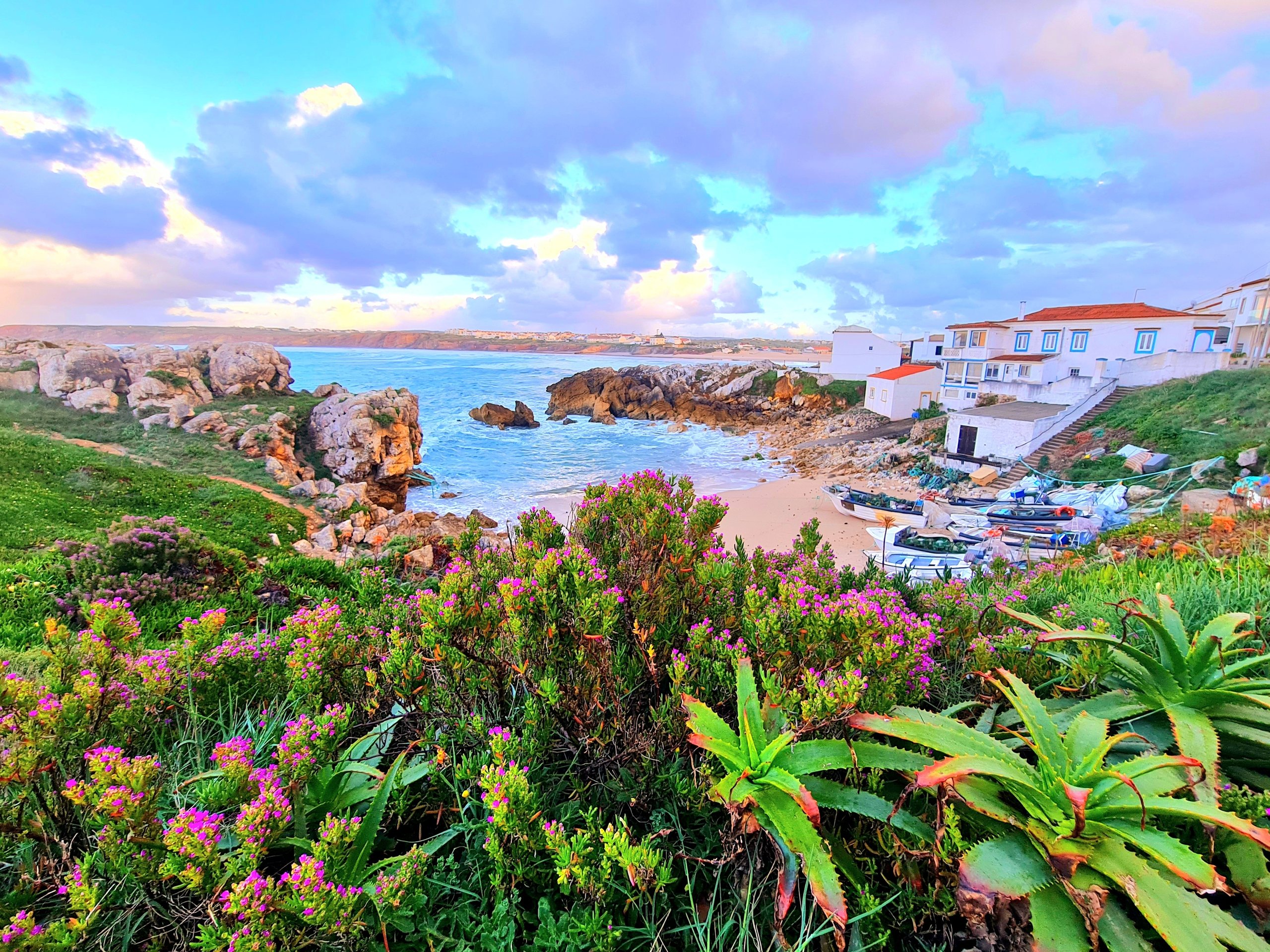Thinking of starting a new life in Portugal? One of the most appealing reasons that draws overseas buyers to this sunny southern European country is its affordable lifestyle. Whether you’re retiring, investing in a second home or planning a full-time relocation, understanding the day-to-day costs is essential for making confident decisions. That’s why doing a little research into the cost of living in Portugal is a smart idea.
At Your Overseas Home, we can help you estimate your real-world expenses using our annual Cost of Living Index – comparing living costs across multiple countries including Portugal, the UK and Spain. So, how far will your budget stretch in Portugal in 2025? Grab a coffee and let’s break it down.
Contents

Overview of cost of living in Portugal
Portugal consistently ranks as one of the most affordable Western European countries to live in. According to Property Guide’s 2024 cost comparison, everyday prices remain well below UK levels. On average, our sample shopping basket came in about 20–25% cheaper than an equivalent shop in Britain. But it’s not just food – household costs, dining out and local services are often much more accessible too.
Of course, prices vary by region. Lisbon and parts of the Algarve can be more expensive due to tourism and demand from international buyers. That said, even in capital cities or thriving coastal towns, it’s possible to find better value with a few local tricks.
Importantly, integrating with the local lifestyle – buying Portuguese products, shopping at markets, learning the language – gives you the most value. Trying to replicate a British lifestyle abroad by sticking to imported goods and familiar brands will cost more. Adapting brings both savings and a richer experience.
For a closer look at purchasing abroad, grab your free copy of our Portugal Buying Guide:
Download the Portugal Buying Guide
Grocery shopping and supermarkets
Portuguese supermarkets combine low prices with excellent fresh produce – especially if you steer clear of imported luxury goods. Our research shows that basic pantry items, dairy, fruit and local cheeses are significantly cheaper than their UK equivalents. But if you’re searching for cottage pie ingredients or tins of baked beans, prepare to pay a premium.
Heinz ketchup, PG Tips and British chocolate bars are stocked in many large supermarkets – particularly in expat-friendly regions – but they’re imported and marked up. A bag of Walkers crisps might cost nearly three times what you’d pay at home. Our advice? Give the fantastic local brands a try. Portugal’s regional cheeses, wines and pastries won’t disappoint.
Local markets are where the real bargains are. Fresh seafood, seasonal fruit and veg and olive oil can be bought directly from growers and producers. Farmers markets are common across the country and offer produce that’s fresher, often organic and better value than imported supermarket stock.
Travel and transport costs
One of the few areas where Portugal can be more expensive than the UK is transport – particularly driving. Road fuel is surprisingly pricey due to high taxes. Diesel and petrol often sit above the UK average, meaning residents living near the Spanish border may cross over just for cheaper fuel. Learn more about transport in Portugal to get a clearer picture.
As for car ownership, automotive taxes and registration fees make buying a vehicle significantly more costly than expats expect. Used vehicles hold their value impressively thanks to Portugal’s dry climate which helps prevent rust. Many foreign buyers encounter sticker shock when browsing the second-hand car market – even high-mileage cars command strong prices.
Public transport, however, offers better news. City metro systems and regional trains are clean, easy to use and cheaper than similar journeys in the UK. A monthly public transport pass in Lisbon can cost under €50, making it an especially attractive option in urban centres.
Household expenses and furnishing
Running a household in Portugal is generally affordable, but there are some quirks to be aware of as a new arrival. After you get your utilities connected in Portugal, energy costs – especially during winter – tend to be higher than you might expect. Many older Portuguese homes lack central heating, relying on portable radiators or wood burners instead. Electricity and bottled gas can become a notable expense in colder months.
Water and waste services are predictably low, and broadband coverage is generally fast and affordable, depending on your location. Streaming, working remotely or staying in touch with family back home won’t break the bank.
In terms of furnishing your home, Portugal has several large retailers like IKEA and Leroy Merlin offering familiar and cost-effective solutions. If you want something unique, antique shops and second-hand markets can yield striking finds at low prices.
Do note that online shopping is more limited than in the UK. Amazon does not directly serve Portugal – although you can order from the Spanish site. Be mindful of delivery times and restrictions, especially if you’re living in more rural locations.
Leisure and eating out
This is where Portugal really shines. Whether you live in a town centre or rural village, the cost of enjoying life is refreshingly low. A coffee in a local café rarely costs more than €1.20. A glass of good local wine? Around €2 in most places, even in larger cities. And a three-course lunch menu (often including wine) in a traditional restaurant costs between €10 and €15.
Entertainment, including cinema tickets, cultural events and sporting activities, is also reasonably priced. Beach access is always free, and with over 300 days of sunshine a year in some regions, your weekends needn’t cost a cent.
Fitness memberships vary. Boutique gyms in cities may mirror UK prices, but many areas offer budget-friendly options – including municipality-run gyms or outdoor fitness spaces. Golf, tennis and hiking are all popular and well-supported, often at lower costs than comparable facilities in northern Europe.
Living in Portugal doesn’t mean sacrificing quality of life – quite the opposite. Leisure activities are central to the culture here, and locals know how to enjoy themselves without overspending.
Smart spending tips for expats
If you’re planning a move to Portugal in 2025, budgeting smartly from the beginning will make your transition smoother. Here are a few key tips from our Portugal property consultants:
- Avoid tourist pricing – Seek out cafés and restaurants away from beaches and busy tourist zones. A beer might cost €3.50 on the seafront but just 80 cents in a local taverna up the road.
- Focus on local products – Portuguese brands are almost always better value than imported goods. From detergents to dairy, make the switch and pocket the difference.
- Use local markets and butchers – You’ll pay less and likely enjoy higher quality, especially for fresh and seasonal items.
- Get to know your neighbours – Making friends in the community might lead to insider tips on where to shop, which tradespeople to trust and even local events or discounts.
- Plan currency transfers carefully – Don’t rely on your bank. A currency specialist can lock in exchange rates or help you transfer funds at the best time – safeguarding your home-buying budget and living costs.
Portugal remains one of the most affordable, safe and enjoyable European countries for international buyers in 2025. With a little adaptation and smart spending, your budget will likely go further than it would back home – all while enjoying better weather, wine and weekend plans.
Need help planning your relocation or property purchase? Speak to one of our local property consultants today to get started.
FAQs about the cost of living in Portugal
Yes. Portugal’s overall cost of living is significantly lower than the UK. Grocery bills, dining out, local services and entertainment are all more affordable. However, fuel and car ownership can be more expensive.
Groceries in Portugal are 20–25% cheaper than in the UK on average. Local produce, cheese, bread and wine offer excellent value. Imported or British-brand items are more expensive, especially in expat-heavy regions.
Utilities such as water and broadband are generally affordable. Electricity and heating costs can be higher during winter, especially in older homes without central heating. Expect to pay €75–€150 per month for energy depending on usage.
Yes. Public transport is clean, efficient and good value. A monthly pass in Lisbon costs under €50, and train and metro services are significantly cheaper than in the UK. Car fuel, however, is comparatively expensive due to high taxes.
Eating out is very affordable. A coffee costs around €1.20, a glass of wine €2, and a three-course lunch menu between €10–€15. Dining and leisure are integral to local life and offer excellent value across Portugal.









